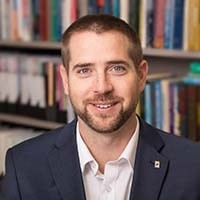Webinar | Why Environmental Noise Should be Treated as a Pollutant
Environmental noise is rarely treated as critically as are the sorts of emissions that we traditionally think of as air pollutants, generally due to a lack of consensus on a direct causal link between noise and human health effects. Hearing loss, which typically arises from noise exposure in the workplace at sound levels of 85 to 90 dBA or higher, is widely recognized. However, a growing body of research and experiential evidence shows that environmental noise from industry greater than about 45 to 55 dBA can lead to very real and non-negligible costs and should be treated as critically and proactively as any other air pollutant, rather than as a simple nuisance. For industry, failure to address the potential impacts of environmental noise effectively on the surrounding community (even in the absence of quantitative regulatory limits) can result in costs for remediation, public relations, and sometimes legal proceedings that far exceed that of proactive noise control. When community noise complaints are received, there are effective strategies for industries to respond, investigate, and remediate. Better yet, there are well-established methods for industries to manage environmental noise proactively before it becomes a community concern.
Brought to you by the Edmonton Branch. Everyone is welcome to attend.
For any questions about this event, please contact [email protected].
About the Presenters
Ian Bonsma , P.Eng., INCE, has more than 18 years of experience in noise, vibration, and acoustics engineering consulting. Ian’s responsibilities cover a wide variety of projects, including architectural acoustical design of buildings, environmental noise, ground-borne vibration, and structural vibration assessments. His recent work has focused on the analysis and design of noise and vibration controls for building services as well as architectural acoustic design for commercial and institutional spaces that include acoustic optimization, speech intelligibility, and privacy solutions. Ian is familiar with the acoustical implications associated with LEED and WELL building design in his area of expertise and has considerable experience using measurement techniques to identify and develop controls for troublesome noise and vibration problems.
, P.Eng., INCE, has more than 18 years of experience in noise, vibration, and acoustics engineering consulting. Ian’s responsibilities cover a wide variety of projects, including architectural acoustical design of buildings, environmental noise, ground-borne vibration, and structural vibration assessments. His recent work has focused on the analysis and design of noise and vibration controls for building services as well as architectural acoustic design for commercial and institutional spaces that include acoustic optimization, speech intelligibility, and privacy solutions. Ian is familiar with the acoustical implications associated with LEED and WELL building design in his area of expertise and has considerable experience using measurement techniques to identify and develop controls for troublesome noise and vibration problems.
